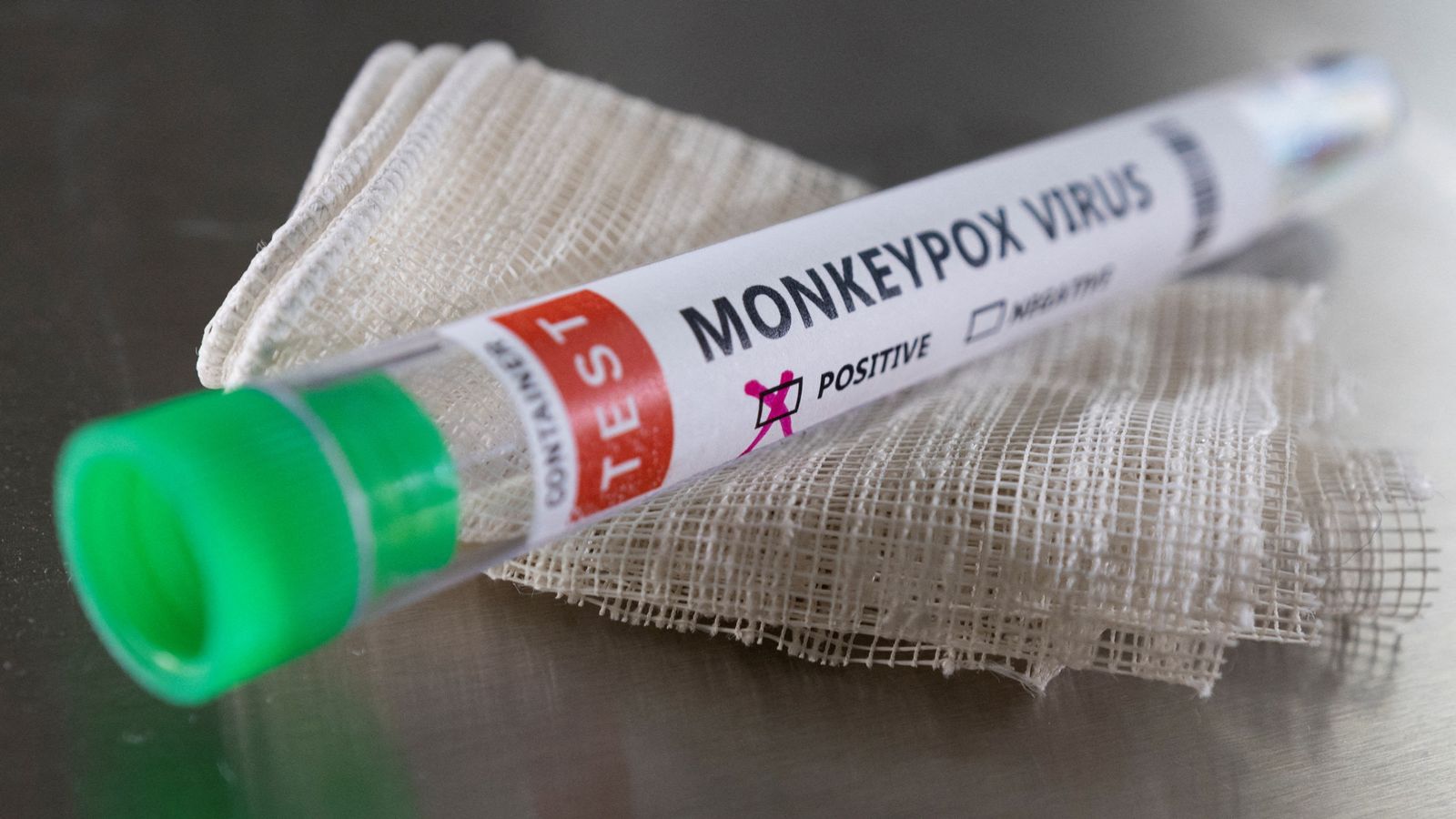Vaccines should be offered to some gay and bisexual men at higher risk of contracting monkeypox, the UK Health Security Agency has said.
It recommends offering the smallpox vaccine Imvanex, which is shown to be effective against the virus.
The UKHSA said a doctor may advise vaccination for someone who “has multiple partners, participates in group sex or attends ‘sex on premises’ venues”.
Anyone can contract monkeypox, but the agency said data show higher levels of transmission “within, but not exclusive to, the sexual networks of gay, bisexual and other men who have sex with men”.
Monkeypox is not classed as a sexually transmitted infection but can be passed on through the close contact that occurs during sex.
There were 793 confirmed cases in the UK as of 20 June: 766 in England, 18 in Scotland, three in Northern Ireland and six in Wales.
The strategy has been endorsed by the Joint Committee on Vaccination and Immunisation (JCVI), which led the UK’s approach to COVID vaccinations.
UK records 50 new monkeypox cases – taking total to 574
Monkeypox set to be renamed as experts call for a ‘non-discriminatory’ alternative
Monkeypox: Fresh warning issued by UKHSA as England records further 104 cases
Previously, the UKHSA only recommended a vaccine for close contacts of cases, including healthcare workers.
NHS England is due to give details shortly on how eligible people can get a jab. People are advised not to come forward until contacted.
Dr Mary Ramsay, head of immunisation at UKHSA, said contact tracing was helping limit the spread of monkeypox and that by offering a vaccine they hope to “break chains of transmission”.
“Although most cases are mild, severe illness can occur in some people, so it is important we use the available vaccine to target groups where spread is ongoing,” she said.
People are being advised to watch out for any new spots, ulcers or blisters on any part of their body – especially if they’ve had close contact with a new partner.
Anyone with these symptoms should avoid close contact with others and call NHS 111 or their local sexual health centre.
More than 2,500 monkeypox cases have been reported in over 35 countries outside of Africa, where the virus is endemic.









